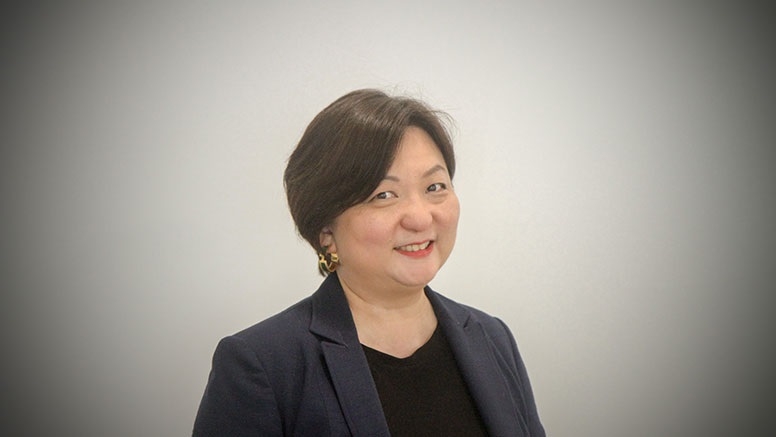Interpreting for Astronauts on the International Space Station—a Last Outpost in U.S.-Russian Relations
| by Mark C. Anderson
Alum Tatiana Lind ‘08 draws on her talent for languages and advanced training at the Institute as an interpreter at NASA.
| by Min Eu MATI ’95

Middlebury Institute graduates discuss where they are working today, how the Institute helped them get there, and what advice they’d give to current and future MIIS students.
My name is Min Eu and I graduated with an MA in Translation and Interpretation from the Middlebury Institute in 1995. My language pair was Chinese-English. Prior to coming to Monterey, I earned my BA in English language and literature at Providence University in Taichung, Taiwan.
While at the Institute, I was part of the 1994 Stanford Medical Center Interpretation Internship’s first cohort. Today, I am chief operations officer at aLanguageBank in New York City. I work closely with the cofounder and managing partner of this minority- and woman-owned small business. My responsibilities include overseeing day-to-day operations to meet our short-term objectives and long-term goals, managing high-stake client relationships, International Organization for Standardization (ISO) compliance, and strategic talent scouting.
The solid practical training and soft skills that I have acquired and developed at the Institute have been instrumental in my career advancement.
Interestingly enough, the cofounder and managing partner used to work as a freelance translator for me, when I ran a translation center for an indie movie channel in Taiwan. Around 2000, we reconnected in the U.S. and later I became her freelancer for aLanguageBank. We’ve stayed in touch over the years, and when she needed someone to lead the operations team, she invited me to join the company in 2023 as the vice president. In the spring of 2024, I was promoted to the position of chief operations officer.
The solid practical training and soft skills that I have acquired and developed at the Institute have been instrumental in my career advancement. I’m thankful for the nurturing and collaborative environment that the Institute has provided and for the support and guidance that my professors and my friends have given me.
After graduation, I was able to take on a great variety of assignments, including running a subtitling translation center, serving as an in-house interpreter/executive assistant to expats, and doing book translation, voice work, and interpretation assignments. The Institute’s alumni network, a.k.a. the MIIS Mafia, is so supportive. I sought advice and guidance often and never was I turned away. It was also through the Institute’s alumni network that I landed adjunct teaching posts at the Graduate Studies in Interpreting and Translation (GSIT) program at the University of Maryland College Park (2015–2020) and in the Translation and Interpretation program at the Institute (2021–22) respectively.
Collectively, these experiences prepared me to take on my current senior management role.
My best advice for current students is to stay curious and expose yourself to as many diverse projects as possible. Yes, there may be some specific interest or focus areas that you’d like to work on. However, take on the assignments with an open mind! New interest areas may be discovered, and you never know where the opportunities may lead you.
Master of Arts in Translation; Translation and Interpretation; Conference Interpretation
| by Mark C. Anderson
Alum Tatiana Lind ‘08 draws on her talent for languages and advanced training at the Institute as an interpreter at NASA.
| by Sierra Abukins
Over 8,000 people from across the world recently tuned in for a conversation with top employers, academics, and practitioners on how the field is changing and what’s next.
| by Andrew Gatland
Translation and Interpretation master’s student Leon Taubitz has been selected as a winner of the prestigious 16th United Nations St. Jerome Translation Contest.